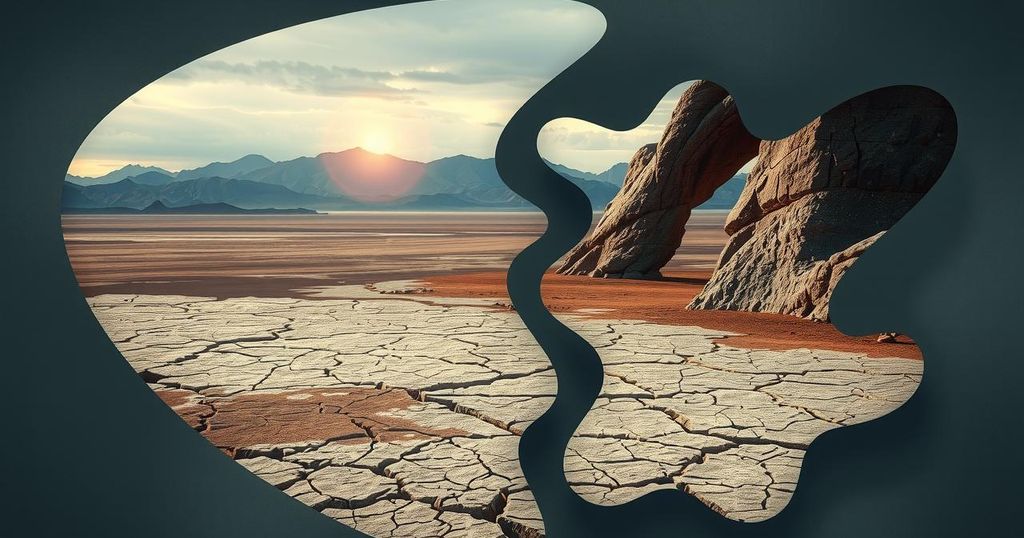The M23 rebellion in the DRC has seen the group make significant territorial gains with little resistance, exacerbating an already dire humanitarian crisis. The conflict raises concerns of regional involvement, particularly from Rwanda and Uganda. The DRC’s President is reliant on international support, yet diplomatic efforts have stalled, necessitating an urgent need for inclusive dialogue and cooperation among stakeholders to address the escalating violence.
Since the M23 rebellion’s resurgence in late January 2025, it has made significant gains in the Democratic Republic of the Congo (DRC), capturing major cities such as Goma and Bukavu. Backed by Rwanda, the M23 forces encounter minimal resistance from the Congolese military, particularly following the withdrawal of European mercenaries. Burundian troops, numbering approximately 10,000, have also begun retreating from South Kivu amidst the tide of advances made by M23.
The M23 has pushed southward towards Uvira after taking Kamanyola, while another faction is advancing north towards Butembo. Concurrently, Ugandan forces have entered the conflict by seizing control of Bunia, raising concerns about their intentions and potential collaboration with the M23. Uganda claims this engagement does not contravene prior agreements regarding the fight against the Allied Democratic Forces (ADF).
The ongoing violence has exacerbated an already critical humanitarian crisis in the region, displacing thousands and resulting in a significant death toll, with estimates reaching up to 3,000 during the attacks on Goma alone. As the situation escalates, calls for a ceasefire by regional organizations like the East African Community (EAC) and Southern African Development Community (SADC) have remained largely ineffective due to political tensions and the continuous military progress by M23.
Claude Kabemba, a Congolese academic, warns that the speed of M23’s advances could lead to their control over Kinshasa, the DRC capital. Analysts suggest that M23 has benefited from extensive military training and state support, particularly from Rwanda and Uganda, which both nations deny. M23’s strategies now include consolidating power by absorbing Congolese forces and establishing administrative control over territories it occupies.
The DRC’s President, Felix Tshisekedi, is relying on SADC troops to combat the M23 insurgency. Sadly, the conflict mirrors past wars in Congo, with regional implications reminiscent of the First and Second Congo Wars. The M23 has adopted new methods by establishing political governance in captured areas and controlling lucrative resources, further fueling the conflict’s complexity.
The international community remains engaged in diplomatic attempts to resolve the crisis, although recent summits have failed to yield concrete agreements. The EAC’s and SADC’s inability to align their actions has complicated efforts, and future peace talks necessitate a comprehensive approach to include all factions, alongside addressing citizenship issues that contribute to tension between ethnic groups.
Ultimately, the DRC faces an urgent call for inclusive dialogue through a Congolese National Conference, which would involve various political and social stakeholders. Drawing on past experiences and lessons, such a conference would need a verified good neighborly agreement between the DRC and Rwanda, a multinational monitoring force, and guarantees for conflict resolution to rebuild trust among communities in the region.
The situation in the Democratic Republic of the Congo, exacerbated by the M23 rebellion and its regional implications, presents a multifaceted crisis requiring immediate and comprehensive action. Calls for a concerted diplomatic approach emphasize the need for inclusive dialogue, addressing underlying issues of political legitimacy and ethnic tensions. Without a robust response, the risk of escalating violence remains high, threatening fundamental stability in the DRC and its neighboring countries.
Original Source: reliefweb.int




